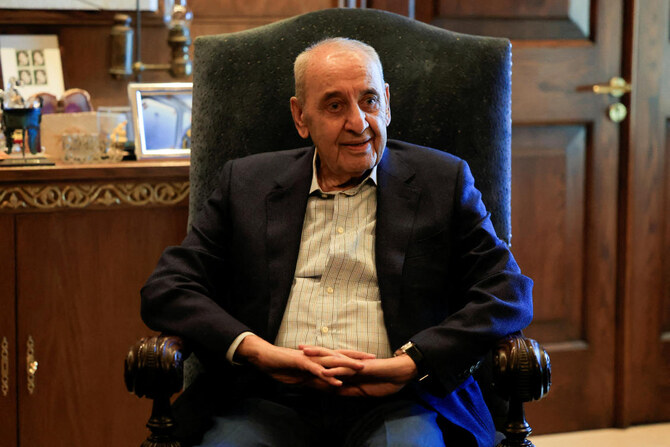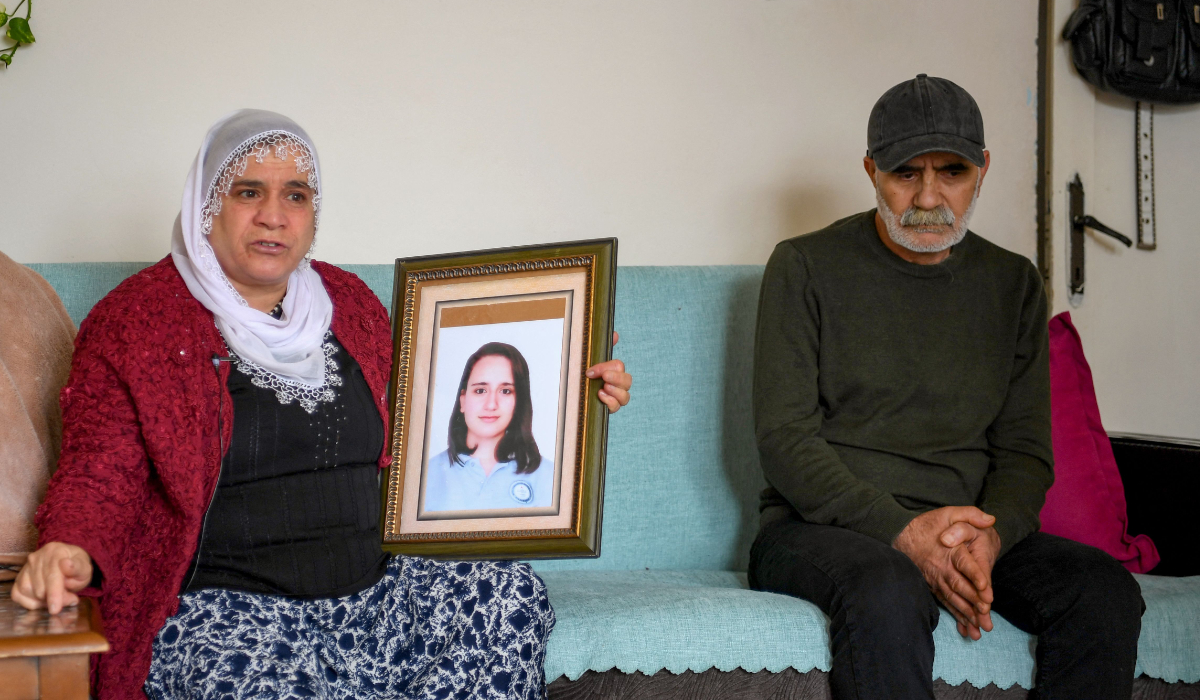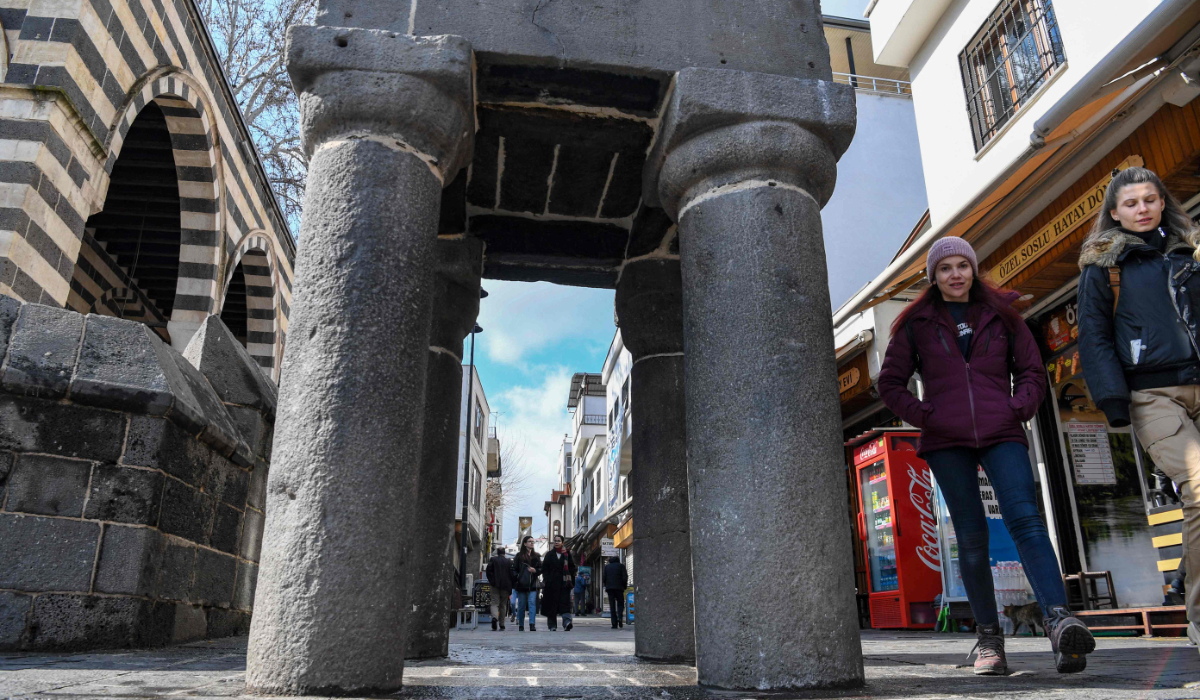BEIRUT: Lebanese Parliament Speaker Nabih Berri reprised his role as a key interlocutor between Hezbollah and the United States as Washington sought to mediate an end to the war with Israel, drawing on decades of experience to help clinch the deal.
It has underlined the sway the 86-year-old still holds over Lebanon, particularly the Shiite Muslim community in which he has loomed large for decades, and has been seen as a steadying influence since Israel killed Sayyed Hassan Nasrallah, the head of the Iran-backed Hezbollah, in September.
Addressing Lebanese in a televised speech on Wednesday, Berri said Lebanon was closing “a historical moment that was the most dangerous that Lebanon has ever experienced,” and appealed to Lebanese to show unity for the sake of Lebanon.
Berri rose to prominence as head of the Shiite Amal Movement during Lebanon’s 1975-90 civil war. He has served as parliament speaker — the highest role for a Shiite in Lebanon’s sectarian order — since 1992.
Hezbollah’s new leader Sheikh Naim Qassem endorsed Berri as a negotiator, calling him the group’s “big brother.” US envoy Amos Hochstein met Berri repeatedly during numerous visits to Beirut aiming to broker an end to the hostilities which were fought in parallel with the Gaza war and escalated dramatically in September.
It echoed the role Berri played in helping to bring an end to the last major war between Hezbollah and Israel in 2006.
Diplomats say his role has been all the more important because Lebanon is without a president, its cabinet has only partial authority, and there are few ways to access Hezbollah, which is branded a terrorist group by the United States.
“When you come to Lebanon now, he is really the only person worth meeting. He is the state,” a Beirut-based diplomat said.
He rose to global prominence in 1985 by helping negotiate the release of 39 Americans held hostage in Beirut by Shiite militants who hijacked a US airliner during Lebanon’s 15-year civil war.
His election as speaker after the civil war coincided with Nasrallah’s rise to leadership of Hezbollah. Together, they led the “Shiite duo,” a reference to the two parties that dominated Shiite political representation and much of the state.
A diplomat who frequently visits Berri said: “He’s the trusted partner of Hezbollah, which makes him very important, but there is also a clear limit to what he can do, be it due to Hezbollah or Iranian stances.”
Israeli fire has hit areas where Berri’s Amal Movement holds sway, including the city of Tyre.
IMPROVING SHI’ITES’ STANDING
Born in 1938 in Sierra Leone to an emigrant merchant family from Tibnine, Berri was raised in Lebanon and was active in politics by the time he was at university.
Many in the once downtrodden Shiite community applaud Berri for helping improve their standing in a sectarian system where privileges were skewed toward Christians and Sunni Muslims.
A trained lawyer, Berri took the helm of Amal after its founder, Imam Musa Sadr, disappeared during a visit to Libya.
Berri was behind the military rise of Amal, which fought against nearly all the main parties to the civil war including Hezbollah, which later became an ally.
After the civil war, Berri’s Shiite followers joined the state apparatus and security agencies en masse, and he appeared to move in political lockstep with Hezbollah.
When a 2006 US embassy cable raised questions over his true feelings toward Hezbollah on its publication in 2010, he dismissed it, declaring that Nasrallah “is like myself.”
In 2023, Berri’s Amal fighters joined Hezbollah in firing rockets against Israel in solidarity with Gaza when Israel began its offensive after Hamas’s Oct. 7 attack on southern Israel.
Foreign envoys began visiting Beirut and meeting Berri to try to halt exchanges of fire across the Israel-Lebanon border, and sought to convince Hezbollah to withdraw north of the Litani River running some 30 km (20 miles) north of the frontier.
Berri told one foreign official “it would be easier to move the Litani River south to the border than to push Hezbollah north of the Litani,” a source close to Berri told Reuters.
But Berri’s opponents have also criticized him as part of the sectarian elite that steered Lebanon into economic ruin in 2019, when the financial system collapsed after decades of state corruption.
Others blame him for refusing to call a parliamentary session for lawmakers to elect a president, leaving the top Christian post in government empty for more than two years.
Berri’s role as a diplomatic conduit has irked Hezbollah’s political rivals, such as the Christian Lebanese Forces, who say any negotiations must be carried out by Lebanon’s president.






























